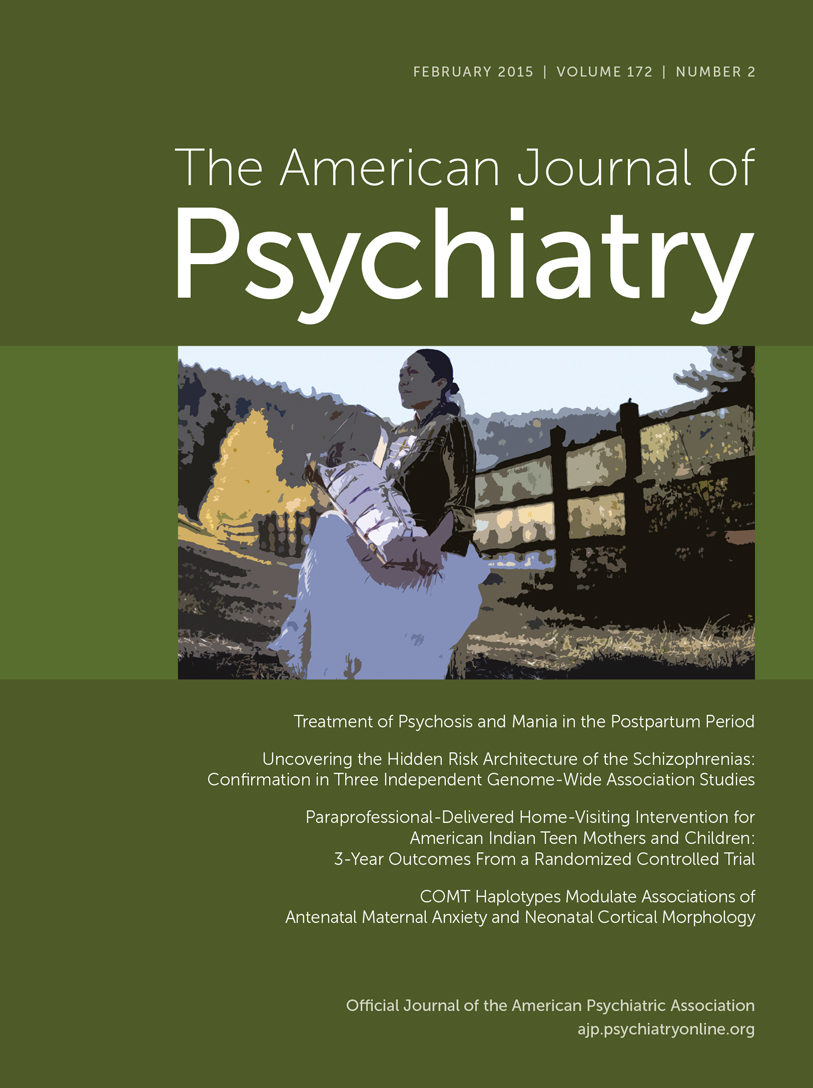Treatment of Psychosis and Mania in the Postpartum Period
Abstract
Postpartum psychosis is a severe disorder that warrants acute clinical intervention. Little is known, however, about what interventions are most effective. The authors present treatment response and remission outcomes at 9 months postpartum using a four-step algorithm in patients with first-onset psychosis or mania in the postpartum period. Treatment involved the structured sequential administration of benzodiazepines, antipsychotics, lithium, and ECT. The outcome of clinical remission was examined in 64 women consecutively admitted for postpartum psychosis. Remission was defined as the absence of psychotic, manic, and severe depressive symptoms for at least 1 week. Women who remitted on antipsychotic monotherapy were advised to continue this treatment as maintenance therapy, and women who required both antipsychotics and lithium to achieve remission were maintained on lithium monotherapy. Relapse was defined as the occurrence of any mood or psychotic episode fulfilling DSM-IV-TR criteria. Using this treatment algorithm, the authors observed that nearly all patients (98.4%) achieved complete remission within the first three steps. None of the patients required ECT. At 9 months postpartum, sustained remission was observed in 79.7%. Patients treated with lithium had a significantly lower rate of relapse compared with those treated with antipsychotic monotherapy. Multiparity and nonaffective psychosis were identified as risk factors for relapse. The authors conclude that a structured treatment algorithm with the sequential addition of benzodiazepines, antipsychotics, and lithium may result in high rates of remission in patients with first-onset postpartum psychosis and that lithium maintenance may be most beneficial for relapse prevention.



